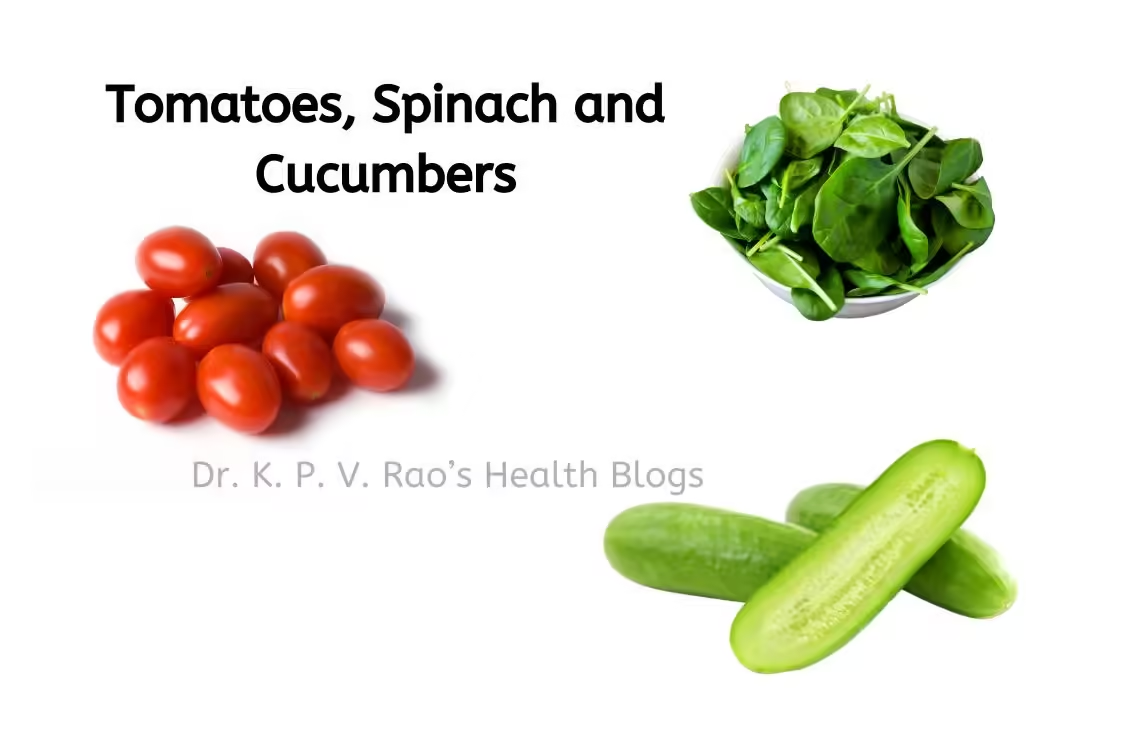Fresh and Nutritious with Considerations
Introduction
In my last article, we discussed the first of the 6 popular vegetaables- broccoli, brinjal and mushrooms
In this article we discuss 3 more popular vegetables, namely, tomatoes, spinach, and cucumbers.
This was in short about these remaining 3 popular vegetables. We will now study in details what nutrients they provide, the benefits of eating them and the drawbacks they have.
Tomatoes- a power house of vitamins and nutrients
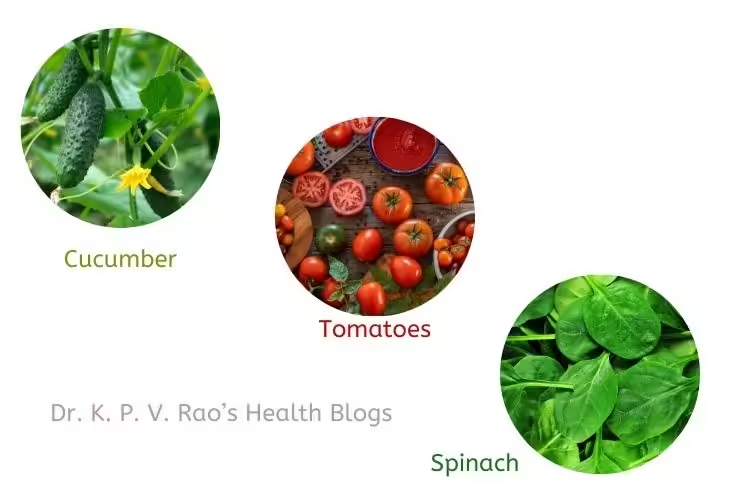
As far as Tomatoes go, they are packed with nutrients and are a rich source of lycopene, which is beneficial for heart health.
Tomatoes are another nutrient-rich vegetable, celebrated for their high concentrations of vitamins A and C, as well as the powerful antioxidant lycopene. Lycopene has been linked to a reduced risk of heart disease and certain types of cancer, making tomatoes a valuable addition to a balanced diet.
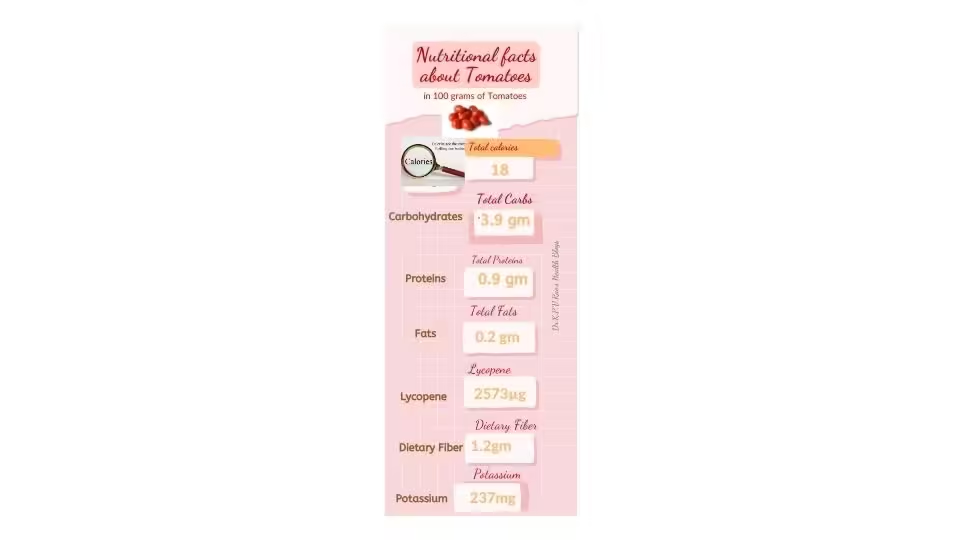
Please note that these values may vary slightly depending on the specific tomato variety and ripeness.
Other than the above mentioned items that compose a tomato, there are many more vitamins like Vitamin A, Vitamin C, B6, folic acid, etc, in appropriate quantities that makes tomatoes a a sort of super food to have in our daily diet.
Despite their nutritional benefits, tomatoes’ natural acidity can trigger acid reflux or heartburn in some individuals. For those prone to these conditions, opting for low-acid tomato varieties or cooking tomatoes to reduce their acidity can help minimize discomfort while still enjoying their health benefits.
Why one should include tomatoes in their daily meals
So, what’s great about eating tomatoes? Well, you can see it has many benefits – like they are rich in vitamins, minerals, and antioxidants especially lycopene, which promote overall health. They are a great source of vitamin C, potassium, and folate.
Additionally, tomatoes are known for their lycopene content, which has been linked to various health benefits. Including tomatoes in your daily meals can contribute to a nutritious diet.
Spinach- a popular vegetable enjoyed by Popeye
In the 5th space, we have Spinach- this is a nutrient-dense leafy green that is high in vitamins and minerals, particularly iron and calcium.
Spinach is a leafy green vegetable that boasts an impressive array of nutrients, including iron, calcium, and vitamins A and K.
Nutritional facts sheet on spinach
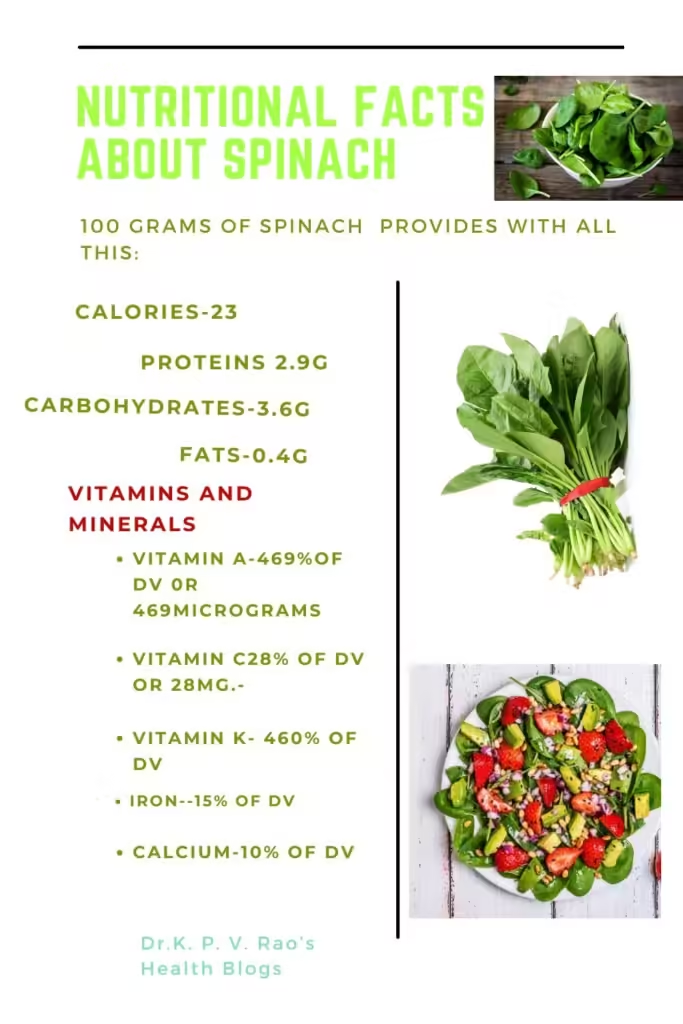
These nutrients contribute to overall health by supporting blood health, bone strength, and immune function.
Nonetheless, spinach is also high in oxalates, compounds that can contribute to the formation of kidney stones in susceptible individuals. Oxalates also hamper the proper absorption of calcium and iron in the intestines.
It also contains a high amounts vitamin K that interferes with functions of blood thinner like warfarin, a medicine used in treatment of heart disease.
Why should one use or include Spinach in his/her diet?
Finally, you should know that Spinach is a nutrient-dense leafy green vegetable that offers several health benefits. It is rich in vitamins A, C, and K, as well as iron and folate.
Including spinach in your diet can support healthy vision, boost immunity, promote strong bones, and aid in digestion.
Useful article- 15 of the most nutrient dense foods
Cucumbers- one of the popular vegetables in summer
Coming to Cucumbers- they are refreshing and low in calories. They are a good source of hydration and contain antioxidants.
Cucumbers are a popular vegetable known for their high water content, making them an excellent choice for maintaining hydration and aiding in weight management due to their low-calorie profile. With approximately 95% water, cucumbers can help keep the body hydrated, especially during hot weather.
Here are the nutritional facts [this may vary in different varieties of cucumbers and are therefore approximate values: ] for 100 grams of cucumber
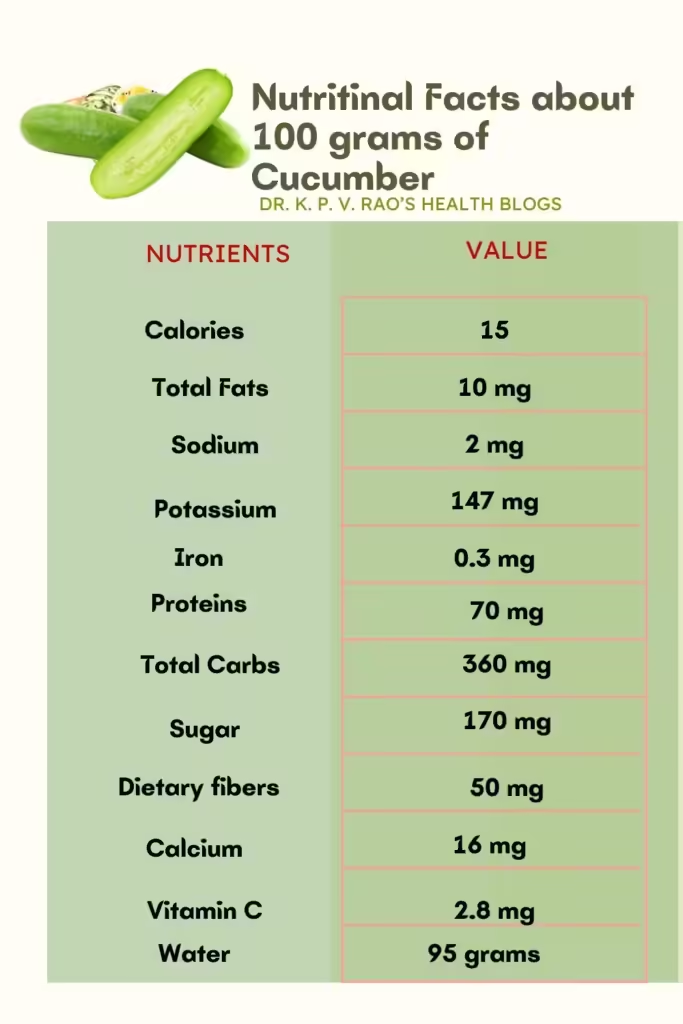
- Calories: Approximately 12 calories
- Total Fat: 0.16 grams (less than 1% of the recommended daily intake)
- Carbohydrates: 2.16 grams (including 0.7 grams of dietary fiber and 1.38 grams of natural sugars)
- Protein: 0.59 grams
- Vitamins and Minerals:
- Vitamin C: 3.2 milligrams (4% of the recommended daily intake)
- Calcium: 14 milligrams (1% of the recommended daily intake)
- Iron: 0.22 milligrams (1% of the recommended daily intake)
- Potassium: 136 milligrams (3% of the recommended daily intake)
Remember that cucumbers are low in calories and a refreshing addition to salads and snacks!
Source:
(1) Calories in 100 g of Cucumber and Nutrition Facts – FatSecret.
(2) Calories in 100 G Cucumber – Nutritionix. .
Additionally, they are a good source of vitamins K and C, which support bone health and immune function. However, the high water content of cucumbers may not be suitable for individuals with certain digestive conditions, such as irritable bowel syndrome (IBS), as they can exacerbate symptoms like bloating and discomfort. To mitigate these issues, peeling cucumbers or consuming them in moderation may be advisable.
Why should one use cucumbers in their daily meals
So, what benefits do you get by eating cucumbers? Well, first of all, Cucumbers are a nutritious addition to daily meals. They are low in calories and high in water content, which can help with hydration.
Cucumbers also contain vitamins, minerals, and antioxidants that support overall health. Additionally, their refreshing taste and crunchy texture can add a pleasant element to various dishes. They are usually used as a salad in main meals.
Conclusion
In conclusion, I would like to say that tomatoes, spinach, and cucumbers offer various health benefits but also have potential drawbacks. Incorporating them into a balanced diet can contribute to overall health, but individual tolerance and preferences should be considered.
So, to summarize this topic in short, this is what we should remember-
Tomatoes: Rich in antioxidants, vitamins, and minerals. May help reduce the risk of chronic diseases. However, being high in acidity may cause digestive issues for some individuals.
Spinach: Packed with nutrients like iron, vitamins A, C, and K. Beneficial for eye health and may lower blood pressure. Yet, it can be high in oxalates, which may contribute to kidney stones in susceptible individuals.
Cucumbers: Hydrating and low in calories. Contains vitamins and minerals. Can aid in hydration and weight management. However, it is limited in terms of overall nutritional value compared to other vegetables.
Final Words
I hope you have found this article informative and useful. If yes, please do share on the social media icons at the bottom of this article. You can also Click to Tweet here-
Cucumbers, Tomatoes and Spinach-Next 3 of the 6 Popular Vegetables Share on XMy next post will be on a respiratory condition called COPD- short for Chronic Obstructive Pulmonary Disease. Till then-
Adios.
Here are some articles you’ll find interesting-

